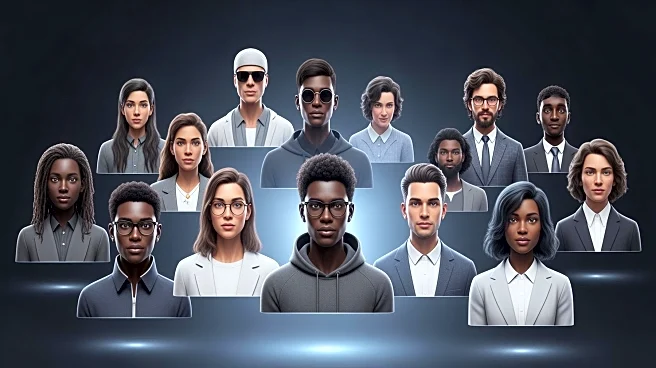What's Happening?
The rise of Black AI influencers on social media platforms like TikTok and Instagram is drawing attention to the issue of digital blackface. These hyperrealistic avatars, designed to mimic Black individuals,
engage in activities such as fashion hauls and social commentary. Critics argue that these AI-generated personas perpetuate racial stereotypes and exploit Black culture for profit. The phenomenon is seen as an evolution of digital blackface, where Black expressions are appropriated and commodified in the digital space.
Why It's Important?
The emergence of Black AI influencers raises significant ethical questions about representation and cultural appropriation in the digital age. It highlights the ongoing exploitation of Black culture and the potential for technology to reinforce harmful stereotypes. This development could impact how society perceives and values authentic Black voices and contributions. It also underscores the need for more inclusive and responsible AI development that respects cultural identities and promotes diversity.
Beyond the Headlines
The use of AI to create racialized avatars touches on broader issues of digital ethics and the responsibilities of tech companies. It challenges the boundaries of identity and authenticity in virtual spaces, prompting discussions about the regulation of AI-generated content. The trend may also influence future policies on digital representation and the protection of cultural heritage in the digital realm.









